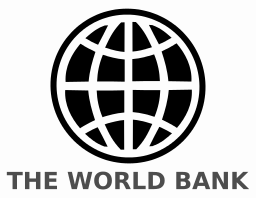The World Bank predicted that Sub-Saharan Africa’s economy will expand 3.6% this year, down from 4% in 2021, as rising food and energy costs fuelled by Russia’s war in Ukraine might cause political upheaval in the region.
While the bank increased its projection for this year by 0.1% points and stated that last year’s growth exceeded its expectations, it also predicted that inflation in the region would accelerate to 6.2% this year, up from 4.5% in 2021.
Due to rising commodity prices, stricter global monetary policy, and a fall in foreign financial flows, the war in Ukraine will exacerbate the issues slowing Africa’s recovery from the coronavirus epidemic, despite limited direct economic ties, it stated.
The World Bank’s newest Africa’s Pulse report stated, “(The war’s) largest impact is on the increasing likelihood of civil strife as a result of food- and energy-fuelled inflation amid an environment of heightened political instability.”
According to the report, the proportion of countries in Sub-Saharan Africa classified as having a high risk of financial distress increased to 60.5% in October 2021, up from 52.6% in October 2021.
The report, released ahead of the International Monetary Fund’s Spring Meetings next week, stated that “the existing debt relief and resolution mechanisms have been insufficient to bring down debt levels.”
“Improvements are much needed to avoid a large wave of debt crisis among developing countries, particularly Sub-Saharan African countries.”
It went on to say that Ghana, whose currency has fallen 17.9% against the dollar this year, was “leading the way” in terms of concerns about debt sustainability, despite forecasting 5.5 percent growth for the country in 2022.
Ghana’s government has stated that it would not seek IMF assistance.
Since Russia attacked Ukraine, triggering food and commodity price rises, Sri Lanka, Egypt, and Tunisia have requested aid from the World Bank’s sister organisation.
The World Bank said its revised growth forecast for last year was driven by increases of 1.2% and 0.3% in 2021 figures for Nigeria and South Africa, respectively, but warned that growth in Nigeria, South Africa, and Angola would remain “sluggish.”
According to the World Bank, growth in South Africa will increase by 2.1% this year, in Angola, 2.9%, and in Nigeria, 3.8%, while Ivory Coast, the fastest-growing West African economy, will grow at 5.7%, and Kenya, the largest economy in East Africa, will grow at 5%.

